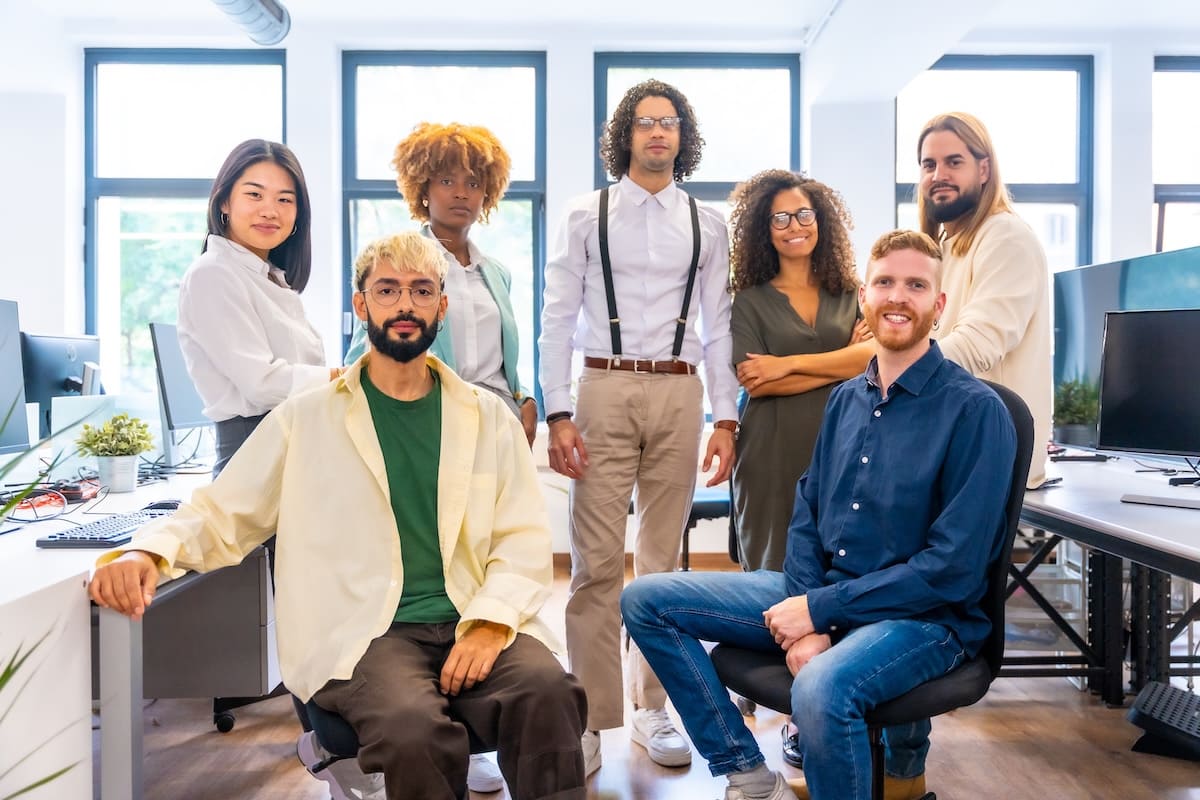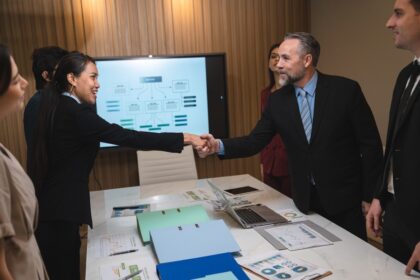Hinweis: Ich bin weder Initiator dieses Projekts noch dafür verantwortlich und repräsentiere auch nicht das BMZ. Ich versuche lediglich neutral und objektiv über dieses Thema zu informieren.
Die Twin Transition des Bundesministeriums für wirtschaftliche Zusammenarbeit und Entwicklung (BMZ) verfolgt das Ziel, digitale Transformation und Nachhaltigkeit in einer umweltbewussten globalen Entwicklung miteinander zu verknüpfen. Angesichts drängender Herausforderungen wie dem Klimawandel und der wachsenden digitalen Kluft, die während der Pandemie zusätzlich verschärft wurde, zeigt sich der Bedarf an innovativen Ansätzen. Fast 50 % der Bevölkerung im Globalen Süden haben keinen Zugang zum Internet, was die Bedeutung der Twin Transition unterstreicht.
Entwicklungen wie die Unterstützung einer klimafreundlichen digitalen Entwicklung von 75 Ländern und über 1170 nichtstaatlichen Organisationen verdeutlichen, dass die Integration von digitalen Lösungen und Nachhaltigkeitsstandards unerlässlich ist. Vor diesem Hintergrund strebt die Initiative an, dass alle Gesellschaftsschichten von den Vorteilen der Digitalisierung profitieren, während die Schaffung neuer, umweltfreundlicher Produkte im Fokus steht. Ebenso ist der Global Digital Compact ein entscheidender Schritt in Richtung einer nachhaltigeren digitalen Sphäre, die den Herausforderungen unserer Zeit gerecht wird.
Einführung in die Twin Transition des BMZ
Die Einführung Twin Transition des BMZ vereint zwei entscheidende Herausforderungen, die die globale Entwicklung maßgeblich beeinflussen. In Anbetracht der rasant fortschreitenden digitalen Transformation verfolgt das BMZ Initiativen, die sowohl den Klimaschutz als auch die Bekämpfung sozialer Ungleichheiten in den Vordergrund stellen. Bis zur Mitte des Jahrhunderts muss das Leben und Wirtschaften weltweit klimaneutral werden, was eine wesentliche Neuausrichtung erfordert.
Im Kontext der nachhaltigen Entwicklung sieht das BMZ konkrete Schritte vor, wie etwa die Umstellung von mehr als 100.000 kleinbäuerlichen Haushalten in Andhra Pradesh bis 2025 auf klimaresiliente ökologische Landwirtschaft. Diese Transformation hat bereits zu einer erheblichen Einkommenssteigerung für betroffene Familien geführt. Die sozial und ökologisch nachhaltige Umgestaltung der Wirtschaft wird durch das Engagement des BMZ für menschenwürdige Arbeitsplätze und effektive soziale Sicherungssysteme unterstützt.
Zusätzlich wird der Strukturwandel im Bereich erneuerbare Energien vorangetrieben, was sowohl zur Schaffung neuer Arbeitsplätze als auch zur Schließung bestehender Lücken beiträgt. In Mpumalanga werden stillgelegte Kohlekraftwerke in Trainingszentren für Berufe im Bereich erneuerbare Energien umgewandelt. Diese Maßnahmen stehen im Einklang mit den Zielen der digitalen Transformation, die darauf abzielt, innovative Lösungen auch in ressourcenarmen Regionen einzuführen.
Im Rahmen der BMZ Initiativen wird ein offener Dialog mit der Wirtschaft und der Zivilgesellschaft gefördert, um notwendige Reformen und Investitionen zu diskutieren. Die Twin Transition wird somit zu einem zentralen Instrument, um die Herausforderungen des 21. Jahrhunderts aktiv anzugehen und eine inklusive, nachhaltige Zukunft zu gestalten.
Die Rolle der Digitalisierung in der nachhaltigen Entwicklung
Digitalisierung ist ein Schlüssel zur Förderung nachhaltiger Entwicklung. Ihre Anwendung in verschiedenen Sektoren optimiert Prozesse, die von der Landwirtschaft bis hin zu Gesundheitsdiensten reichen. Laut der Internationalen Energieagentur könnte der Energieverbrauch durch digitale Technologien wie künstliche Intelligenz bis 2026 erheblich ansteigen. Gleichzeitig eröffnen diese Technologien bedeutende Chancen für den Klimaschutz, indem sie ambitioniertere nationale Klimaziele unterstützen.
Die strategische Nutzung digitaler Kapazitäten wie Echtzeitdaten und vorausschauende Analysen macht evidenzbasierte Entscheidungen möglich. Der Einsatz von Blockchain-Technologien zur Schaffung transparenter nationaler Treibhausgasregister ist ein Beispiel dafür, wie Digitalisierung konkrete Schritte in Richtung Klimaschutz ermöglichen kann. Datenzentren, die mit erneuerbaren Energien betrieben werden, zeigen weiterhin auf, wie digitale Infrastruktur zur Reduzierung von Treibhausgasemissionen beitragen kann.
Ein umfassendes Potenzial der Digitalisierung liegt in der Reduzierung der globalen Treibhausgasemissionen um bis zu 20 %. Trotzdem sind Informations- und Kommunikationstechnologien (IKT) im Jahr 2020 für 1,8 bis 3,2 % der weltweiten Treibhausgasemissionen verantwortlich. Dies verdeutlicht die Notwendigkeit einer verantwortungsvollen Digitalisierung.
Die digitale Transformation wird als integraler Bestandteil der sozial-ökologischen Transformation der Wirtschaft angesehen. Sie soll die Agenda 2030 unterstützen und gleichzeitig Wege aufzeigen, wie klimatologische Herausforderungen sinnvoll angegangen werden können. Der Fokus liegt auf der Schaffung von Arbeitsplätzen und der Bekämpfung von Armut durch nachhaltige wirtschaftliche Politiken.
Twin Transition des BMZ: Die Verbindung von Digitalisierung und Nachhaltigkeit
Im Rahmen der Twin Transition des BMZ zeigt sich, wie Digitalisierung und Nachhaltigkeit zusammenwirken können, um globale Herausforderungen zu meistern. Die Initiative fördert innovative digitale Lösungen, die darauf abzielen, ökologische und soziale Probleme gezielt anzugehen. Im Agrarsektor werden beispielsweise digitale Rückverfolgbarkeitssysteme implementiert, um die Nachhaltigkeit in der Lieferkette zu verbessern.
Ein bemerkenswertes Beispiel ist das Fairwork-Projekt, das KI-gestützte Datenanalysen nutzt, um die Arbeitsbedingungen in der Plattformökonomie zu evaluieren. Diese Ansätze verdeutlichen, dass eine enge Zusammenarbeit zwischen grüner Politik und digitaler Innovation nicht nur wirtschaftliche Effizienz fördert, sondern auch den ökologischen Fußabdruck signifikant reduziert.
Zusätzlich wurde im Jahr 2021 eine Investition von 15 Millionen EUR in die Initiative „Klima und Digitalisierung“ des BMZ getätigt, um die digitalen Lösungen weiter auszubauen. Deutschlands Ziel, bis 2030 41 Prozent der CO2-Einsparungen zu erreichen, kann durch den gezielten und beschleunigten Einsatz digitaler Lösungen unterstützt werden. Allein in Deutschland könnten durch diese Maßnahmen 152 Megatonnen CO2 reduziert werden, was der notwendigen Erreichung der Klimaziele dient.
Die Eröffnung von 23 Digital Transformation Centers (DTCs) weltweit, die unter anderem in Ecuador, Kosovo und Indonesien angesiedelt sind, zeigt das Potenzial, digitale Lösungen lokal zu implementieren. Diese Zentren fördern speziell Frauen und Mädchen sowie Gemeinschaften, die von der digitalen Kluft betroffen sind. Durch individuelle und kontextsensitive Ansätze wird eine nachhaltige Stärkung lokaler digitaler Ökosysteme gewährleistet.
Globale Herausforderungen und die digitale Kluft
Die digitale Kluft stellt eine der größten Herausforderungen im Kontext der Twin Transition dar. Während viele Länder in den letzten Jahren Fortschritte in der Digitalisierung gemacht haben, bleibt der Zugang zu Informations- und Kommunikationstechnologien (IKT) in den Entwicklungsländern ungleich verteilt. Fast die Hälfte der Bevölkerung im Globalen Süden hat keinen Zugang zum Internet. Dieses Ungleichgewicht führt zu einer mangelnden Teilhabe an Bildungsangeboten, Beschäftigungsmöglichkeiten und sozialen Sicherungssystemen.
Um die digitale Kluft zu überwinden, sind umfassende Maßnahmen erforderlich. Projekte wie die Digital Transformation Centers (DTCs) zielen darauf ab, den Zugang zu digitalen Technologien zu fördern und gleichzeitig die Entwicklung digitaler Fähigkeiten in marginalisierten Gemeinschaften zu unterstützen. Diese Zentren kombinieren standardisierte Lösungsansätze mit einer kundenspezifischen Umsetzung, was eine effektive Reaktion auf die lokalen Gegebenheiten ermöglicht.
Ein Beispiel ist das Digitalzentrum in Ruanda, das als erstes DTC 2017 geöffnet wurde. Es hat gezeigt, wie wichtig der sichtbare Zugang zu technologischen Ressourcen und Schulungen ist, um die Innovation und das technische Know-how vor Ort zu stärken. Zukünftige Initiativen müssen ebenfalls den gender- und klimaspezifischen Herausforderungen Rechnung tragen, um alle Gesellschaftsschichten in die digitale Wirtschaft zu integrieren.
Information: Auf der Startseite gibt es noch mehr Artikel.
- Support-Prozesse digitalisieren: Ticketing als Basis für skalierbaren Kundenservice - 4. Februar 2026
- Windows 11: Die 10 häufigsten Migrationsfehler - 3. Februar 2026
- Digitale Urlaubsplanung: So gelingt die Abwesenheitsverwaltung per App - 22. Januar 2026





